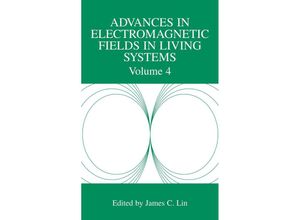Advances in Electromagnetic Fields in Living Systems published by Springer since 1994
presents state-of-the-art discussions in electromagnetism that influence the activities of
living organisms. This focus affirms Springer's commitment to publish important reviews to add
to the scientific and professional literature significant research larger in scope than journal
articles. Advances in Electromagnetic Fields in Living Systems Volume 4 begins with fetal
magnetocardiography (fMCG) a noninvasive method of detecting components of the magnetic field
produced by the electrical activity of the fetal heart. FMCG is experiencing steady growth and
is expected to gain influence in diagnosing certain congenital fetal heart defects while at the
same time providing optimal care for patients. FMCG provides a distinct signal free of
maternal cardiac interference which can be detected throughout the last half of pregnancy.
Other Key Topics: -Noninvasive biomedical application of non-ionizing electromagnetic energy
-Microwave thermoelastic imaging uses microwave-pulse-induced thermoelastic pressure waves to
form planar or tomographic images -Mechanisms of light-tissue interaction in the near infrared
region and different types of instruments used for diffuse optical imaging -Advances in
reliable laser diodes and optical telemetry -ELF magnetic-field exposure and the pain system
-Cyclotron resonance in enhancing the sensitivity of biological systems to magnetic fields.
Advances in Electromagnetic Fields in Living Systems will be essential reading for all
academics bench scientists and industry professionals wishing to take advantage of the latest
and greatest in this continuously emerging field. About the Editor: Dr. James C. Lin is
Professor of Electrical Engineering Professor of Bioengineering and Professor of Physiology
and Biophysics at the University of Illinois - Chicago. Among other honors Dr. Lin is a Fellow
of IEEE Fellow of AAAS a Founding Fellow of AIMBE and a recipient of the d'Arsonval Medal
from the Bioelectromagnetics Society.



